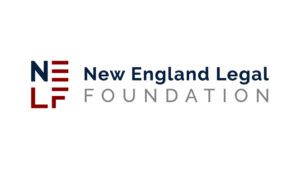NEWS RELEASE – FOR IMMEDIATE RELEASE – NEWS RELEASE
For information contact: Camaryn Sapienza
(630) 699-9865 (mobile)
csapienza@lat.cup.mybluehost.me
New England Legal Foundation Files Amicus Brief in Supreme Court Case
E.M.D. Sales, Inc. v. Faustino Sanchez Carrera
Boston, MA (August 15, 2024) – The New England Legal Foundation (NELF), a prominent nonprofit, public interest law firm, has filed an amicus brief with the Supreme Court of the United States in the case E.M.D. Sales, Inc., et al., v. Faustino Sanchez Carrera, et al. The brief supports the petitioners and underscores the importance of preserving the legislative balance between employer and employee interests under the Fair Labor Standards Act (FLSA).
Background
The case, currently on a writ of certiorari to the United States Court of Appeals for the Fourth Circuit, involves a critical question regarding the standard of proof required for employers to demonstrate that an employee is exempt from overtime pay under the FLSA. NELF argues in its brief that employers should be able to meet this burden by a mere preponderance of the evidence, rather than a heightened clear-and-convincing standard.
Key Points of the Brief
- The FLSA includes 34 exemptions to the overtime-pay requirement, reflecting a legislative balance that considers both employer and employee interests.
- A mere-preponderance standard of proof maintains this balance by allocating the risk of error more equally between the parties.
- A clear-and-convincing standard would disproportionately favor employee interests, undermining the intended legislative compromise.
- The brief references several landmark Supreme Court cases, including Addington v. Texas, Encino Motorcars, LLC v. Navarro, and Grogan v. Garner, to support its argument.
Benjamin G. Robbins, Counsel of Record for NELF, elaborated on the issue, stating, “The Fair Labor Standards Act grants many employees time-and-a-half overtime pay for hours worked beyond 40 hours per week. However, the FLSA also has 34 exemptions that exclude entire industries and categories of employees from receiving overtime pay. The issue here is what standard of proof applies when an employer argues that an employee falls under one of those 34 exemptions. Is it the ordinary standard of a mere preponderance of the evidence, where the employer would only have to persuade the trier of fact by about 51%? Or is it the more difficult standard of clear and convincing evidence?”
Robbins continued, “If a court applied that heightened standard of proof, it would stack the deck against the employer, who would most likely lose, even in cases where the employee is actually not entitled to receive overtime pay. I argue for NELF that the FLSA gives no indication that Congress intended to burden the employer with these unfair financial consequences. The FLSA says nothing about the applicable standard of proof. Under Supreme Court case law, this silence must mean that Congress intended to leave in place the ordinary, mere-preponderance standard of proof.”
“In the FLSA,” Robbins concluded, “Congress has balanced the competing economic interests of the employer and the employee by substantially limiting the right to overtime pay. Only a mere-preponderance standard would preserve that legislative balance by giving nearly equal weight to each side’s interest in a correct court decision on the issue of overtime pay. By contrast, a heightened, clear-and-convincing standard of proof would destroy Congress’s balanced treatment of overtime pay, by requiring the employer to bear the risk and expense of a wrong decision on the issue.”
Read the full brief here.
###
About the New England Legal Foundation: Founded in 1977, the New England Legal Foundation (NELF – www.newenglandlegal.org) is the leading non-partisan, non-profit public interest law firm in the region dedicated to economic liberty. NELF’s ongoing mission is to champion free enterprise, property rights, limited government based on rule of law, and inclusive economic growth. We believe that free enterprise is a foundational value of a democratic society and the best opportunity for people to lift themselves to prosperity.


